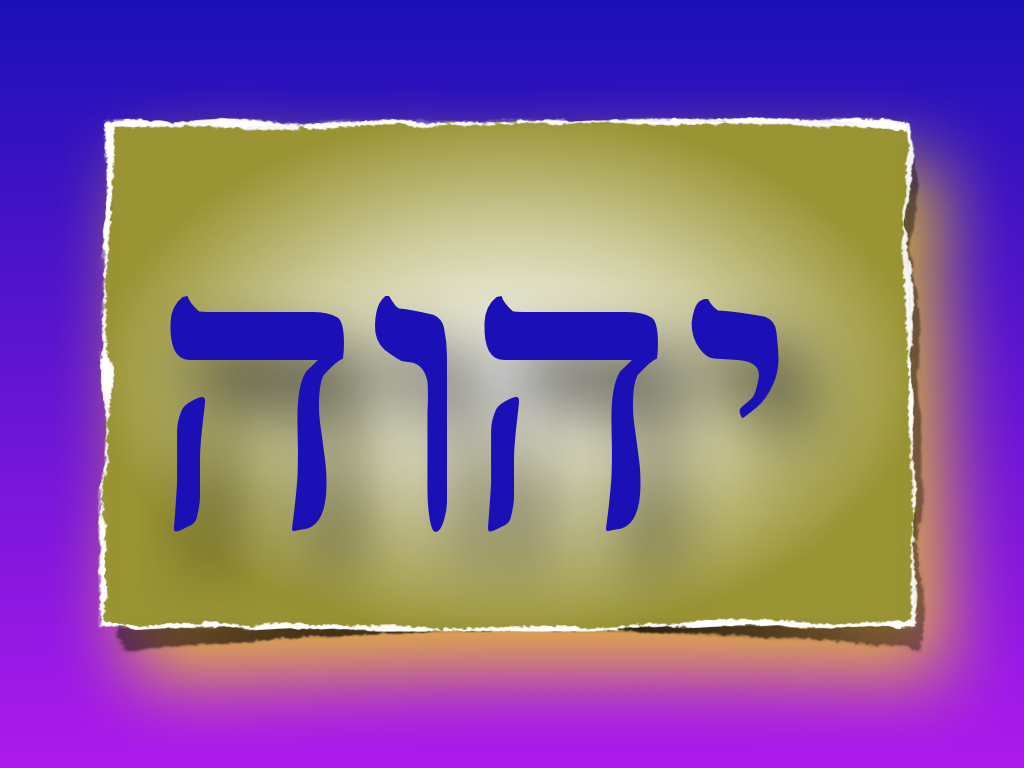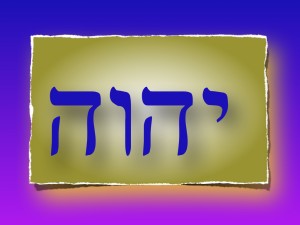Exodus 3:14–15, I AM THAT I AM. The name YHVH is Elohim’s memorial name forever. It reflects that fact that he is; that he is undefinable in human terms, and that he has always existed. This is the name by which he is to be remembered (not forgotten as is the case with the ineffable name concept of the rabbinic Jews whereby the names of deity are forbidden to be used). Exodus 3:14 and 15 read as follows:
14 And Elohim said unto Moses, I AM THAT I AM (EHYEH ASHER EHYEH): and he said, Thus shalt thou say unto the children of Israel, I AM (EHYEH YHVH) hath sent me unto you. 15 And Elohim said moreover unto Moses, Thus shalt thou say unto the children of Israel, YHVH the Elohim of your fathers, the Elohim of Abraham, the Elohim of Isaac, and the Elohim of Jacob, hath sent me unto you: this is my name [Heb. shem] for ever, and this is my memorial [Heb. zeker] unto all generations.
Here are some examples of how various Bible versions translate the name of YHVH:
- I Am That I Am (KJV)
- I Am Who I Am (NAS, NIV, NKJV
- I Am That Which I Am (YLT)
- I Shall Be As I Shall Be (The ArtScroll Stone Edition Tanach)
- I Will Be What I Will Be (The Gutnick Edition Chumash, JPS)
- I Will Be There Howsoever I Will Be There (The Schocken Bible)
- I Am the Being (LXX, Brenton)
Exodus 3:15 states that YHVH is Elohim’s memorial name that Moses was to use when referring to I AM THAT I AM. I AM THAT I AM is Elohim’s actual name and what he calls himself, but men are to refer to him as YHVH, which means “the existing one, the one who is, the one who will be.” Both the former and latter are forms of the Hebrew verb hayah meaning “to be.” YHVH instructed that YHVH was to be his memorial name forever. In other words, humans were to use YHVH to remember him by. There is no indication anywhere in the Bible that it was YHVH’s intention that his name was to be forgotten or hidden through euphemization. The word memorial in Exodus 3:15 is the Hebrew word zeker and means “memorial, remembrance or memory.” There is nothing here to indicate that his name was to be forgotten.
It must be noted here that we don’t refer to YHVH as I Am, for were we to do so it would be necessary to say “I Am,” and in all reality, we aren’t the I Am, but YHVH is the I Am. Just so there is no confusion when communicating YHVH’s name in every day speech, the Bible uses, not the Hebrew ehyeh meaning “I Am,” but the form of the verb which means “He Is.” In this way, every time we say his name we’re glorifying him, and not inadvertently glorifying ourselves.
The name YHVH, referred to as the tetragrammaton, is the personal name of the Creator and occurs some 6800 times in the Tanakh. The exact pronunciation of this name has been lost down through the ages, and there is debate among well-meaning individuals on how to pronounce this four consonant Hebrew name. Because there are now vowels in this name, scholars can only speculate and make educated guesses about what the vowels between the consonants should be. No one knows for sure how to vocalize the consonants Y-H-V-H. The best scholarly opinions on this subject are just that—educated guesses.
Instead of getting all worked up about how exactly to pronounce Elohim’s name, let’s just love, worship and obey YHVH! These are the weightier matters of the Torah (Matt 23:23; 1 Cor 13:1–13). This is the distinguishing mark a true disciple of Yeshua (John 13:35), and what will separate the goats from the sheep (Matt 25:37–44)—not how we pronounce YHVH’s name!





